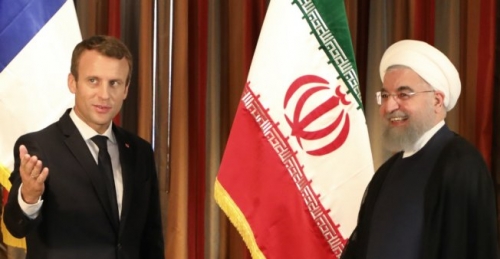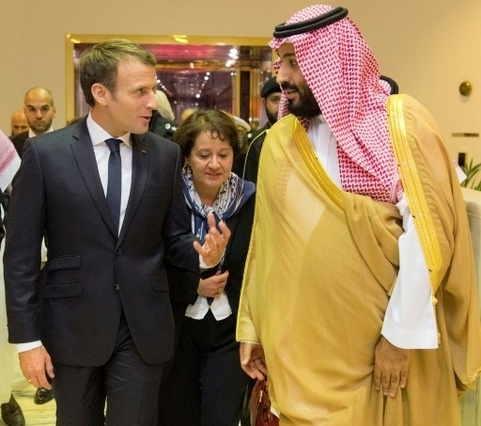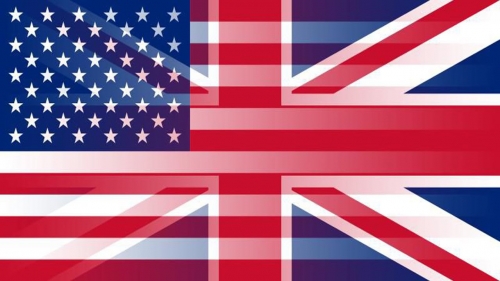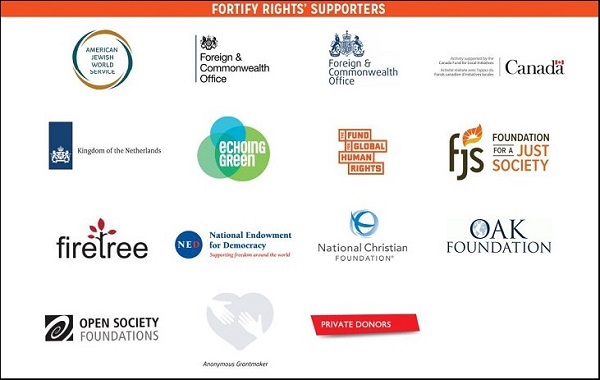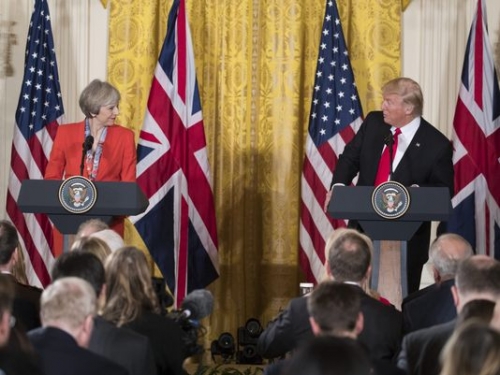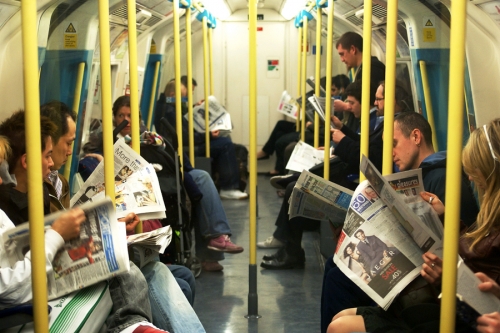
Presseschau
September 2018
AUßENPOLITISCHES
Patriotische Globalisierungskritik
https://recherche-dresden.de/patriotische-globalisierungs...
Welt ohne Geld - Wie die Abschaffung von Banknoten vorangetrieben wird
https://www.youtube.com/watch?v=JJCsxZSWtWE&t=2280s
Bayer-Aktie
Wie ein Urteil zehn Milliarden Euro Börsenwert auslöscht
Weil die Konzerntochter Monsanto 290 Millionen Dollar Schmerzensgeld an einen Hausmeister zahlen soll, stürzt der Kurs der Bayer-Aktie ab. Wie kann das sein?
http://www.spiegel.de/wirtschaft/unternehmen/bayer-und-mo...
(Salvini schmeckt ihnen nicht…)
Rechtspopulist
Italiens Innenminister Salvini empört mit Mussolini-Anspielung
https://www.welt.de/politik/article180189144/Rechtspopuli...
Spaniens Außenminister kritisiert Salvini und lobt Merkel
https://jungefreiheit.de/politik/ausland/2018/spaniens-au...
Affäre Benalla
Macron wird abgeschminkt
von Jürgen Liminski
https://jungefreiheit.de/politik/ausland/2018/macron-wird...
Schweden: Neue Partei will 500.000 Einwanderer ausweisen und Asylsystem komplett abschaffen
https://www.unzensuriert.at/content/0027161-Schweden-Neue...
Brandstiftung
Schweden – Jugendbanden zerstören rund 100 Autos in mehreren Städten
https://www.handelsblatt.com/video/panorama/brandstiftung...
Vermummte setzen in Schweden Dutzende Autos in Brand
https://www.derwesten.de/panorama/vermummte-setzen-in-sch...
Parlamentswahlen
Schwedens Klimawandel durch die Rechtspopulisten
https://www.sueddeutsche.de/politik/schweden-schwedens-kl...
"Sehen aus wie Briefkästen"
Nach Shitstorm und Parteizoff: Rowan Atkinson verteidigt Boris Johnsons Burka-Witz
https://www.stern.de/lifestyle/leute/rowan-atkinson-verte...
Terror in Westminster
Attentäter von London wohnte in Islamistenviertel
https://jungefreiheit.de/politik/ausland/2018/attentaeter...
Ermittler: Messerattacke in Amsterdam war Terroranschlag
https://www.gmx.net/magazine/politik/ermittler-messeratta...
Schweiz
Lausanne
Gleichberechtigung contra Religionsfreiheit
Handschlag verweigert: Schweizer Stadt lehnt Einbürgerung ab
https://jungefreiheit.de/politik/ausland/2018/handschlag-...
Streit ums Denkmal: Wie Russlands Ex-Staatsführer die Gemüter erhitzen
https://de.rbth.com/kultur/geschichte/2017/08/09/streit-u...
Konflikt zwischen Nato-Partnern USA und Türkei
Nach sonderbarem Erdogan-Aufruf an Türken: Lira im Sturzflug - Trump in Höchstlaune
https://www.merkur.de/politik/lira-im-sturzflug-erdogan-w...
Die Folgen der Strafzölle
Türkische Lira fällt und fällt – und zieht den Euro mit sich
https://www.t-online.de/nachrichten/ausland/international...
USA überholen unter Trump Italien bei Verschuldung
In den kommenden Jahren soll fast überall eine Trendwende bei den Schulden einsetzen. Nur die USA scheren aus
https://www.derstandard.de/story/2000078276614/usa-ueberh...
Walk of Fame
Stadtrat in Hollywood gegen Trump-Stern
https://jungefreiheit.de/politik/ausland/2018/stadtrat-in...
Proteste gegen US-Präsident
Secret Service untersucht Morddrohungen der Antifa gegen Trump
https://jungefreiheit.de/politik/ausland/2018/secret-serv...
("mehrheitlich junge Weiße"…)
North Carolina
Demonstranten feiern Sturz von Südstaaten-Denkmal
https://jungefreiheit.de/politik/ausland/2018/demonstrant...
(Krawalle an US-Westküste)
Ultrarechte Eskalationsstrategie
https://www.heise.de/tp/features/Ultrarechte-Eskalationss...
Space Force: USA wollen bis 2020 Weltraumstreitkraft gründen
Die US-Regierung hat das Ziel ausgegeben, die Dominanz im Weltall zu erlangen. Dies sei wichtig, um die Interessen des Landes zu schützen, sagt Vizepräsident Mike Pence.
https://www.zeit.de/politik/ausland/2018-08/space-force-u...
USA schieben früheren KZ-Aufseher nach Deutschland ab
https://www.gmx.net/magazine/panorama/usa-schieben-fruehe...
„Allianz für den Multilateralismus“
Maas setzt auf Kanada als Partner für Gegengewicht zu den USA
https://jungefreiheit.de/politik/ausland/2018/maas-setzt-...
"Niemand hört uns": Jesidin trifft IS-Peiniger in Deutschland wieder
https://www.svz.de/deutschland-welt/panorama/Jesidin-trif...
Kommunistische Regierung in Nepal
Neustart mit Hammer und Sichel
Seit Februar regiert in Nepal eine demokratisch gewählte Allianz aus zwei kommunistischen Parteien. Sie muss sich großen Herausforderungen stellen.
http://www.taz.de/!5526610/
Bolivien
Morales bezieht pompösen Präsidententurm
http://www.lessentiel.lu/de/news/story/Morales-bezieht-po...
http://www.dtoday.de/startseite/politik_artikel,-Bolivien...
Bankpleiten befürchtet: Land-Enteignungen könnten Südafrika teuer zu stehen kommen
http://www.faz.net/aktuell/wirtschaft/mehr-wirtschaft/lan...
May unterstützt Landreform in Südafrika
https://jungefreiheit.de/politik/ausland/2018/may-unterst...
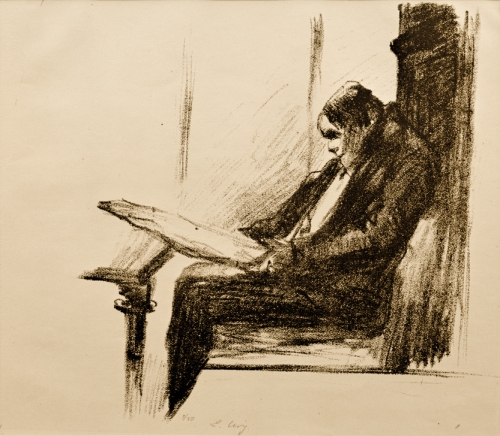
INNENPOLITISCHES / GESELLSCHAFT / VERGANGENHEITSPOLITIK
Dysfunktionaler Staat
Deutschland ist abgebrannt
von Nicolaus Fest
https://jungefreiheit.de/debatte/kommentar/2018/deutschla...
Fast eine Billion Euro
FDP-Chef Lindner: „Der Sozialstaat gerät außer Kontrolle“
https://jungefreiheit.de/politik/deutschland/2018/fdp-che...
Zinsderivate
Hessen verspekuliert Hunderte Millionen Euro an Steuergeldern
https://www.welt.de/wirtschaft/article181299256/Zinsderiv...
Genossen im Umfragetief
Mitgliederzahl der SPD schrumpft: So reagiert Nahles
https://www.merkur.de/politik/mitgliederzahl-spd-schrumpf...
Nahles-Vorschlag zur Türkei
„Mit Wirtschaftshilfen stabilisiert man nur das System Erdogan“
https://www.welt.de/politik/deutschland/article181235588/...
Merkel besucht den Senegal
Das Thema Migration ist schon da
https://www.n-tv.de/politik/Das-Thema-Migration-ist-schon...
ARD-Sommerinterview
Merkel ist übergeschnappt
Von Rainer Zitelmann
https://www.wallstreet-online.de/nachricht/10821041-ard-s...
(Ihr scheinbar größtes Problem…)
Bundesfamilienministerin: "Mit Hakenkreuzen spielt man nicht"
Verfassungswidrige Symbole dürfen seit kurzem in Videospielen gezeigt werden. Franziska Giffey kritisiert dies nun scharf. Auch aus der Union kommt Kritik.
http://www.faz.net/aktuell/wirtschaft/diginomics/franzisk...
Söder schreibt die SPD als politischen Gegner ab
https://www.welt.de/politik/deutschland/article181280198/...
Koalitionen mit Linkspartei
Günther setzt Merkels Links-Kurs der CDU fort
von Jörg Kürschner
https://jungefreiheit.de/debatte/kommentar/2018/guenther-...
Kramp-Karrenbauer
Die CDU will schwuler werden – aber jetzt noch nicht
https://www.welt.de/politik/deutschland/plus181303896/Kra...
Moderne Großstadtpartei CDU
Den anderen linken Parteien einen Schritt voraus
https://jungefreiheit.de/debatte/kommentar/2018/den-ander...
Bundeswehr-Generalinspekteur gegen Wiedereinführung der Wehrpflicht
https://www.pfalz-express.de/bundeswehr-generalinspekteur...
Liederprobleme bei der Bundeswehr
„Jawohl, Frau Kapitän!“
von Felix Krautkrämer
https://jungefreiheit.de/politik/deutschland/2018/jawohl-...
Wegen Tweet zu Chemnitz
Pazderski fordert Disziplinarverfahren gegen Chebli
https://jungefreiheit.de/politik/deutschland/2018/pazders...
(Zu Heiko Maas…)
Wegen Auschwitz in die Politik. Oder umgekehrt?
Von Henryk M. Broder
https://www.achgut.com/artikel/wegen_auschwitz_in_die_pol...
(BRD-Wahnsinn…)
Besuch in Buchenwald
„Leidet Ramelow an Nazitourette?“
https://jungefreiheit.de/politik/deutschland/2018/leidet-...
Antisemitismus
Land setzt mit Ernennung von Felix Semmelroth Zeichen
Zum ersten Mal in der Geschichte des Bundeslandes hat Hessen einen Antisemitismusbeauftragten. Für sein Amt hat sich Felix Semmelroth zwar eine Menge vorgenommen. Ob er dabei viel bewirken kann, hängt aber nicht nur von ihm allein ab.
http://www.fnp.de/rhein-main/Land-setzt-mit-Ernennung-von...
(Besserwisser interpretieren ungeklärte Geschichte)
Beutekunst
Historisches Museum gibt neun Exponate zurück
Das Historische Museum Frankfurt am Main hat neun Exponate mutmaßlichen NS-Raubguts in seiner Sammlung entdeckt und an das Jüdische Museum übergeben. Die Forschung nach der Herkunft und Verwendung erwies sich als sehr schwierig.
http://www.fnp.de/lokales/frankfurt/Historisches-Museum-g...
Deutsche Kolonialzeit
Bundesregierung gibt Herero- und Nama-Gebeine zurück
https://jungefreiheit.de/kultur/2018/bundesregierung-gibt...
(Noch?...)
Schulfahrten zu NS-Gedenkstätten bleiben freiwillig
http://www.fnp.de/rhein-main/Schulfahrten-zu-NS-Gedenksta...
Opfer der DDR
Die große Gleichgültigkeit
von Jörg Kürschner
https://jungefreiheit.de/debatte/kommentar/2018/die-gross...
Nach Eklat in KZ-Gedenkstätte
Auschwitz-Komitee schockiert wegen AfD-Besuchergruppe
Eine AfD-Gruppe hat in der KZ-Gedenkstätte Sachsenhausen an Gaskammern gezweifelt. Die Staatsanwaltschaft ermittelt wegen des Verdachts auf Volksverhetzung.
https://www.tagesspiegel.de/politik/nach-eklat-in-kz-gede...
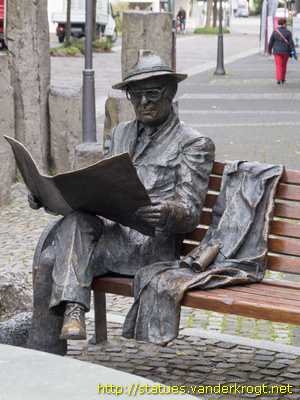
LINKE / KAMPF GEGEN RECHTS / ANTIFASCHISMUS / RECHTE
Repression – im Gespräch mit Caroline Sommerfeld
https://sezession.de/59361/repression-im-gespraech-mit-ca...
(Linke Einwanderungslobby – Jakob Augstein und Konsorten)
Ein amerikanischer Alptraum (1) – Grundlagen
https://sezession.de/59186/ein-amerikanischer-alptraum-1-...
(Linke Einwanderungslobby)
#metwo-Kampagne
Nimm zwei
von Fabian Schmidt-Ahmad
https://jungefreiheit.de/debatte/kommentar/2018/nimm-zwei...
(Zwar von 2015, aber aktueller denn je. Eine finale Abrechnung mit Heribert Prantl, über dessen Geisteszustand nicht mehr spekuliert zu werden braucht.)
"Festung Europa"? Flüchtlinge als Bauern in Mecklenburg ansiedeln
https://www.welt.de/debatte/kommentare/article141708971/F...
(Ein weiterer Fall von Wirklichkeitsverdrehung)
Chemnitz
Angstforscher: Fremdenfeindlichkeit „genetisch veranlagt“
https://jungefreiheit.de/kultur/2018/angstforscher-fremde...
Wagenknecht, die »soziale Frage« und wir (3)
https://sezession.de/59103/wagenknecht-die-soziale-frage-...
„Aufstehen“
36.000 Anmeldungen für Wagenknechts Sammlungsbewegung
https://jungefreiheit.de/politik/deutschland/2018/36-000-...
Tweet zum 13. August
Holm: Linksjugend solid verharmlost Mauertote
https://jungefreiheit.de/politik/deutschland/2018/holm-li...
Linksfraktion im Bundestag
Wer ist da Koch, und wer ist Kellner?
von Felix Krautkrämer
https://jungefreiheit.de/politik/deutschland/2018/wer-ist...
(SPD möchte noch mehr schrumpfen…)
Wegen neuem Buch
Führende SPD-Politiker wollen Thilo Sarrazin erneut loswerden
https://jungefreiheit.de/politik/deutschland/2018/fuehren...
Thilo Sarrazin
Im Fegefeuer der Rassistenjäger
von Lukas Mihr
https://jungefreiheit.de/debatte/kommentar/2018/im-fegefe...
Franziska Schreiber, eine Verleumdung und das Gericht
https://sezession.de/59194/franziska-schreiber-eine-verle...
Thüringens Ministerpräsident
Ramelow macht AfD für wachsenden Antisemitismus mitverantwortlich
https://jungefreiheit.de/politik/deutschland/2018/ramelow...
(…wer´s glaubt, wird selig…)
Durchsichtige Stimmungsmache
Parlamentsfraktionen zerpflücken islamfeindliche Anträge der AfD
https://www.op-online.de/offenbach/durchsichtige-stimmung...
Beobachtung durch Verfassungsschutz gefordert
Oppermann wirft AfD Zusammenarbeit mit Neonazis vor
https://jungefreiheit.de/politik/deutschland/2018/opperma...
Verfassungsschutz
Niedersachsen und Bremen lassen Junge Alternative beobachten
https://jungefreiheit.de/politik/deutschland/2018/nieders...
(SPD-Forderungen willfährig journalistisch sekundiert…Zitat: "Darüber hinaus wird es Zeit, geschichtsklitternde Feinde von Demokratie und Zivilisation zu ächten." Wenn das mal kein hetzerischer Aufruf ist?...)
Wenn der Eklat zum Programm wird
Kommentar: AfD gehört beobachtet
https://www.op-online.de/politik/kommentar-gehoert-beobac...
(Linksradikale wollen anonym bleiben)
Namen von Studentenausschuß
Nach AfD-Anfrage: Humboldt-Uni verklagt Studentenvertretung
https://jungefreiheit.de/politik/deutschland/2018/nach-af...
("Antifa"-Anprangerungsartikel gegen AfD-Politiker)
Peter Felser im völkischen Lebensbund
http://rechte-jugendbuende.de/?p=2345
(Kleine Tricksereien)
Vorstoß von Bürgermeister
München sperrt AfD aus dem Rathaus
https://jungefreiheit.de/politik/deutschland/2018/muenche...
Der Paritätische Wohlfahrtsverband auf linken Abwegen
https://irisnieland.wordpress.com/2018/08/31/der-paritaet...
„Nicht im Einklang mit unseren Werten“
SV Darmstadt 98 will keine AfD-Anhänger unter seinen Fans
https://jungefreiheit.de/politik/deutschland/2018/sv-darm...
„Der Verein tut sich keinen Gefallen“
AfD wirft SV Darmstadt 98 Politisierung und Spaltung der Fans vor
https://jungefreiheit.de/politik/deutschland/2018/afd-wir...
Kampagne gegen AfD
FSV Mainz 05 protestiert gegen Gauland-Auftritt
https://jungefreiheit.de/politik/deutschland/2018/fsv-mai...
(Hier geht die Saat des linken Hasses auf…)
Vorpommern
Linksextremist attackiert AfD-Mitarbeiter in Wahlkreisbüro
https://jungefreiheit.de/politik/deutschland/2018/linksex...
(Angriff gegen den saarländischen AfD-Landtagsabgeordnete Lutz Hecker)
Brutaler Anschlag auf AfD-Politiker: „Ursache ist ist die tägliche Stigmatisierung der AfD“
https://www.journalistenwatch.com/2018/08/13/der-naehrbod...
Dresden
Antifa, Bundeswehr-Distanzierung und trotzdem erfolgreich
https://recherche-dresden.de/antifa-bundeswehr-distanzier...
(Nach linken Feindeslisten wird in den Medien nicht gefragt…)
Rechtsextreme Szene
25.000 Namen auf "Feindeslisten"
https://www.tagesschau.de/inland/feindeslisten-neonazis-1...
Verhärtung
Von Johannes Poensgen
https://sezession.de/59347/verhaertung
(Die nächste Alt-Antifa-Medienaktion)
Neu-Isenburg
Aktionen gegen Ressentiments
Neue Initiative gegen Rechts: „Solidarität statt Hetze“
https://www.op-online.de/region/neu-isenburg/neue-initiat...
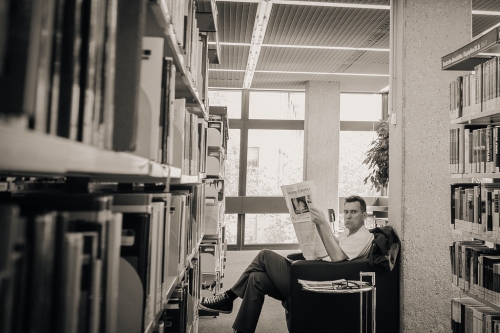
EINWANDERUNG / MULTIKULTURELLE GESELLSCHAFT
Die Asymmetrie des Rassenhasses
https://sezession.de/59322/die-asymmetrie-des-rassenhasses
Statistik
Gibt es wirklich mehr AfD-Wähler, wo weniger Ausländer sind?
von Lukas Mihr
https://jungefreiheit.de/politik/deutschland/2018/gibt-es...
Migration
Wenn die Einheimischen auf einmal in der Minderheit sind
In einigen großen Städten stellen Menschen mit Migrationshintergrund schon die Mehrheit. Das weckt Ängste. Doch die sind oft unbegründet. Eine Kolumne.
Von Barbara John
https://www.tagesspiegel.de/politik/migration-wenn-die-ei...
Bundespräsident
Steinmeier dankt Einwanderern für Deutschlands Wohlstand
https://jungefreiheit.de/politik/deutschland/2018/steinme...
(Großverdiener machen PR…)
"Menschlichkeit ist Pflicht": Herbert Grönemeyer und andere Prominente setzen sich für Seenot-Retter ein
https://www.gmx.net/magazine/politik/menschlichkeit-pflic...
(Alt-68er Leggewie verbreitet mal wieder seine Thesen zu "Rassismus"…)
#MeTwo : Rassismus – Alltag in Deutschland?
https://www.shz.de/nachrichten/meldungen/rassismus-alltag...
(#MeTwo-Kampagne, die natürlich keinen "Rassismus" gegen Deutsche kennt)
Niedersachsens Ministerpräsident
Weil: „Deutschland hat ein Rassismus-Problem“
https://jungefreiheit.de/politik/deutschland/2018/weil-de...
Ist Deutschland zu weiß? (1)
https://sezession.de/59258/ist-deutschland-zu-weiss-1
Ist Deutschland zu weiß? (2)
https://sezession.de/59290/ist-deutschland-zu-weiss-2
Weiße Männer – Allzweckwaffe der Diskriminierungsindustrie (1)
https://sezession.de/59326/weisse-maenner-allzweckwaffe-d...
Weiße Männer – Allzweckwaffe der Diskriminierungsindustrie (2)
https://sezession.de/59339/weisse-maenner-allzweckwaffe-d...
Studie zu Zuwanderern aus der Türkei
Verbundenheit zu Deutschland nimmt ab
https://www.deutschlandfunk.de/studie-zu-zuwanderern-aus-...
Fördergelder in Millionenhöhe
Flüchtlingshilfe lohnt sich
von Felix Krautkrämer
https://jungefreiheit.de/politik/deutschland/2018/fluecht...
Katrin Göring-Eckardt
Grüne erklären Asyl zum Menschenrecht
https://jungefreiheit.de/politik/deutschland/2018/gruene-...
„Jugend Rettet“
Evangelische Kirche: Flüchtlingshelfer im Mittelmeer sind Helden
https://jungefreiheit.de/kultur/gesellschaft/2018/evangel...
Flüchtlingsschiff
„Aquarius“ darf in Malta anlegen: Auch Deutschland nimmt Einwanderer auf
https://jungefreiheit.de/politik/ausland/2018/aquarius-da...
Flüchtlingsboot „Aquarius“
Shuttle-Kapitän Seehofer
von Felix Krautkrämer
https://jungefreiheit.de/debatte/kommentar/2018/shuttle-k...
Hilfe von befreundeten Staaten
Syrien: Komitee soll Rückkehr von Flüchtlingen organisieren
https://jungefreiheit.de/politik/ausland/2018/syrien-komi...
Abgelehnte Asylbewerber
Bleibeperspektive: SPD und FDP stellen sich hinter Günther
https://jungefreiheit.de/politik/deutschland/2018/bleibep...
Einwanderung
Die Abfahrt längst verpaßt
von Michael Paulwitz
https://jungefreiheit.de/debatte/kommentar/2018/die-abfah...
Abschiebungen ausländischer Fachkräfte
Wirtschaftsinstitut: „Jeder verlorene Mitarbeiter tut weh“
https://jungefreiheit.de/politik/deutschland/2018/wirtsch...
Online-Debatte
Bedford-Strohm entsetzt über Zurückweisung von Flüchtlingen
https://jungefreiheit.de/politik/deutschland/2018/bedford...
"Würdevolle Migration"
Grüne Jugend fordert Staatsbürgerschaft für Klima-Flüchtlinge
https://jungefreiheit.de/politik/deutschland/2018/gruene-...
Steigene Zahlen
AfD fordert härteres Vorgehen gegen Kirchenasyl
https://jungefreiheit.de/politik/deutschland/2018/afd-for...
Gesundheitsamt: Alarmierende Lücken
Immer weniger Schulanfänger können Deutsch
https://www.op-online.de/offenbach/immer-weniger-koennen-...
An einem Tag
Spanische Küstenwache bringt 460 Migranten nach Europa
https://jungefreiheit.de/politik/ausland/2018/spanische-k...
Abkommen von 1992
Spanien schiebt Ceuta-Eindringlinge postwendend ab
von Marco Pino
https://jungefreiheit.de/politik/ausland/2018/spanien-sch...
Migrationsvereinbarung
Lambsdorff nennt Spanienabkommen einen „Witz“
https://jungefreiheit.de/politik/ausland/2018/lambsdorff-...
Wiedereinreise trotz Sperre
Knapp 700.000 abgelehnte Asylbewerber in Deutschland
https://jungefreiheit.de/politik/deutschland/2018/knapp-7...
Rekordzahlen
Starker Anstieg ausländischer Kindergeld-Empfänger
https://www.welt.de/politik/deutschland/article180843060/...
Umstrittene Zahlung von Kindergeld an EU-Ausländer: Das Beispiel Duisburg
https://www.tagesschau.de/multimedia/video/video-435303.h...
Überweisungen ins Ausland
EU-Kommission lehnt Kindergeld-Reform ab
https://jungefreiheit.de/politik/deutschland/2018/eu-komm...
Kindergeldzahlungen an Ausländer
Sinti und Roma: SPD soll sich von Duisburger Bürgermeister distanzieren
https://jungefreiheit.de/politik/deutschland/2018/sinti-u...
Ruhrgebiet
Der Kampf einer Essener Mutter um einen Kita-Platz
https://jungefreiheit.de/politik/deutschland/2018/der-kam...
Bundesagentur für Arbeit
Integration von Flüchtlingen im Arbeitsmarkt läuft gut
https://www.welt.de/politik/article181247264/Bundesagentu...
Baden-Württemberg
Schrotthaufen vor Asylunterkunft: „Das wird eine Radwerkstatt“
von Martina Meckelein
https://jungefreiheit.de/politik/deutschland/2018/schrott...
Baden-Württemberg
Die Geschichte einer dubiosen Radwerkstatt für Flüchtlinge
von Martina Meckelein
https://jungefreiheit.de/politik/deutschland/2018/die-ges...
Racial Profiling
Urteil fernab der Realität
von Boris T. Kaiser
https://jungefreiheit.de/debatte/kommentar/2018/urteil-fe...
Verlängerte Rückführungsfrist
Bedford-Strohm kritisiert verschärfte Regeln fürs Kirchenasyl
https://jungefreiheit.de/politik/deutschland/2018/bedford...
„Flüchtlingskirche“
Unbekannte attackieren Kirche unter „Allahu Akbar“-Rufen
https://jungefreiheit.de/politik/deutschland/2018/unbekan...
(Opfer-Story…)
Hockenheim
Burkini-Streit: Schwimmbadleitung widerspricht Moslemin
https://jungefreiheit.de/politik/deutschland/2018/burkini...
Zunahme um fast 60 Prozent
Zahl der Moscheen in Baden-Württemberg wächst stark
https://jungefreiheit.de/politik/deutschland/2018/zahl-de...
DITIB plant spektakuläre Moschee in Norderstedt
https://dieunbestechlichen.com/2018/06/ditib-plant-spekta...
Kampagne für den Gottesstaat
Verfassungsfeindliche Gruppe mobilisiert in Offenbach und Hanau gegen „Kopftuchverbot“
https://www.op-online.de/offenbach/kampagne-gottesstaat-1...
Schwedische „Aktivistin“ verhinderte Abschiebung – jetzt kommt heraus, der Afghane ist ein verurteilter Frauenschläger
https://www.journalistenwatch.com/2018/08/11/schwedische-...
Haftbefehle
Chemnitz: Syrer und Iraker unter Tatverdacht
https://jungefreiheit.de/politik/deutschland/2018/chemnit...
Tatverdächtiger Iraker
Chemnitzer Messerstecher war vorbestraft
https://jungefreiheit.de/politik/deutschland/2018/chemnit...
Nach tödlicher Messerattacke
Chemnitz : Verletzte nach Zusammenstößen bei Trauerkundgebung
https://jungefreiheit.de/politik/deutschland/2018/verletz...
(Der Ausgangspunkt der „Hetzjagd“-Medienlüge von Chemnitz)
Wie man den Ausnahmezustand herbeischreibt
Autor Vera Lengsfeld
https://vera-lengsfeld.de/2018/08/30/wie-man-den-ausnahme...
#CHEMNITZ - Ein Insiderbericht - Frank Stoner im Gespräch mit Frank Höfer
https://www.youtube.com/watch?v=MDU1vo0Tz6A&app=desktop
«Ich bin Oma, kein Rassist»: Chemnitz fühlt sich zu unrecht als rechtsradikal abgestempelt – eine Reportage
https://www.nzz.ch/international/das-schlimmste-was-passi...
„Übertriebene Erzählungen“
Chemnitzer Lokalzeitung widerspricht „Hetzjagd“-Berichten
https://jungefreiheit.de/politik/deutschland/2018/chemnit...
Fall Chemnitz
Haftbefehl veröffentlicht und suspendiert: Beamter erklärt Beweggründe
https://jungefreiheit.de/politik/deutschland/2018/haftbef...
(dazu…)
Sonntagsheld – Ein Diamant im Getriebe
Euer Widerstand soll funkeln…
https://sezession.de/59359/sonntagsheld-74-ein-diamant-im...
Tödliche Messerattacke: Bundesregierung verurteilt „Hetzjagden“
https://jungefreiheit.de/politik/deutschland/2018/toedlic...
Kanzlerin und Minister äußern sich
Chemnitz: Merkel beklagt „Haß auf der Straße“
https://jungefreiheit.de/politik/deutschland/2018/chemnit...
Generalstaatsanwalt überführt Merkel der Lüge: „Es hat in Chemnitz keine Hetzjagd gegeben“
https://www.journalistenwatch.com/2018/09/02/generalstaat...
Trotz gegenteiliger Erkenntnisse
Chemnitz: Bundesregierung verteidigt Hetzjagd-Vorwurf
https://jungefreiheit.de/politik/deutschland/2018/chemnit...
(Hetze-verdächtiges Zitat: „Hier wird überdeutlich, dass sich Kritiker der Europa- und Flüchtlingspolitik zu Gehilfen der Braunen machen lassen.“)
Stadt in der Defensive: Kommentar zur Lage in Chemnitz
https://www.hna.de/politik/stadt-in-defensive-kommentar-z...
(Campino und Co. spannen sich mal wieder vor den Karren der etablierten Eliten)
„Wir sind mehr“ in Chemnitz: Das müssen Sie über das Konzert gegen Rechts wissen
Die Toten Hosen, Marteria, Casper und K.I.Z. rocken unter dem Motto #wirsindmehr in Chemnitz, um ein Zeichen gegen Rechtsextremismus zu setzen. Auch die Band Madsen bezieht mit einem Konzert am Samstag Stellung.
http://www.haz.de/Nachrichten/Kultur/Uebersicht/Wir-sind-...
Chemnitz: Tanz auf dem Grab – Staatskünstler stützen Merkelpolitik
http://unser-mitteleuropa.com/2018/08/31/chemnitz-tanz-au...
Blablacar und Flixbus-Gründer
Gratis-Fahrtkarten zu „Anti-Rechts“-Konzert in Chemnitz
https://jungefreiheit.de/politik/deutschland/2018/gratis-...
(Bundespräsident fördert Linksradikale)
Feine Sahne Fischfilet und der Bundespräsident
Pazderski kritisiert Steinmeiers Werbung für linksextreme Band
https://jungefreiheit.de/politik/deutschland/2018/pazders...
Linksradikale Punkband in Chemnitz
„Feine Sahne Fischfilet“: Polizeigewerkschaft kritisiert Bundespäsidenten
https://jungefreiheit.de/politik/deutschland/2018/feine-s...
CDU-Spitze rügt Bundespräsident Frank-Walter Steinmeier wegen Unterstützung von Feine Sahne Fischfilet
https://www.gmx.net/magazine/politik/cdu-spitze-ruegt-bun...
Konzert in Chemnitz - Mehr als 60.000 setzen Zeichen gegen Rechts
https://www.gmx.net/magazine/politik/konzert-chemnitz-500...
Demonstrationen in Chemnitz
Die Haltungszyniker löschen Feuer mit Benzin
https://jungefreiheit.de/debatte/kommentar/2018/die-haltu...
Chemnitz
Die angestaute Wut auf Merkel explodiert
von Dieter Stein
https://jungefreiheit.de/debatte/kommentar/2018/die-anges...
Chemnitz und die Medien
Die Indoktrination scheitert am ostdeutschen Widerstandswillen
von Karlheinz Weißmann
https://jungefreiheit.de/debatte/kommentar/2018/die-indok...
Chemnitz: Was gesagt werden muss
https://einprozent.de/blog/aktiv/chemnitz-was-gesagt-werd...
Chemnitz – zehn Punkte für die nächsten Tage
Von Götz Kubitschek
https://sezession.de/59342/chemnitz-zehn-punkte-fuer-die-...
Aktualisierung
Trauermarsch für Daniel H. wird nach Blockaden aufgelöst
https://jungefreiheit.de/politik/deutschland/2018/trauerm...
(dazu…)
Nicht nur der Rechtsstaat hat in Chemnitz kapituliert
https://sezession.de/59356/nicht-nur-der-rechtsstaat-hat-...
(dazu…)
Chemnitz – Zwickmühle und Schlußfolgerung
https://sezession.de/59357/chemnitz-zwickmuehle-und-schlu...
Fehlerhafte Berichterstattung
Chemnitz: „Tagesthemen“ mischen Hitler-Hooligans in AfD-Demo
https://jungefreiheit.de/politik/deutschland/2018/chemnit...
Broder über Sachsens Regierungschef: "Der Mann ist ein sprachloser Schwätzer"
https://www.youtube.com/watch?v=h9lCyRITtFo
#chemnitz
"Araber stellen die gefährlichste Gruppe" - klare Worte zur Causa Chemnitz
https://www.youtube.com/watch?v=40RN37g9IZA
Arabische Großfamilien
Und plötzlich ist die Clan-Kriminalität ein Problem
von Felix Krautkrämer
https://jungefreiheit.de/politik/deutschland/2018/und-plo...
Großclans
Kriminell erzogen
https://jungefreiheit.de/debatte/kommentar/2018/kriminell...
"Drogenservice" mit "Bunkerfahrzeug" in Schöneberg
Haftbefehle gegen Mitglieder von arabischer Großfamilie erlassen
https://www.rbb24.de/panorama/beitrag/2018/08/berlin-haft...
Gefängnisse in Deutschland
Fast jeder dritte Häftling ist Ausländer
https://jungefreiheit.de/politik/deutschland/2018/fast-je...
Inhaftierungsraten
Die Mär vom strukturellen Rassismus
von Lukas Mihr
https://jungefreiheit.de/debatte/kommentar/2018/die-maer-...
Video sorgt für Empörung
Ausländer attackieren Polizisten in Plauen
https://jungefreiheit.de/politik/deutschland/2018/auslaen...
Video aufgetaucht: Polizei-Einsatz in Plauen eskaliert
https://www.tag24.de/nachrichten/plauen-postplatz-polizis...
(dazu…)
Gewalt gegen Polizisten
Die „dünne blaue Linie“
von Alice Weidel
https://jungefreiheit.de/debatte/kommentar/2018/die-duenn...
Sextäter am Wochenende
Begrapscht, vergewaltigt, belästigt, mißbraucht
https://jungefreiheit.de/kultur/gesellschaft/2018/begraps...
Frauen und Mädchen erneut Opfer von Übergriffen
https://jungefreiheit.de/politik/deutschland/2018/frauen-...
Übergriffe und Belästigungen
Beim Joggen und auf dem Heimweg: Sex-Täter überfallen Frauen
https://jungefreiheit.de/politik/deutschland/2018/beim-jo...
Dank Merkels Völkerwanderung: Alle 15 Stunden ein sexueller Übergriff in Leipzig
http://unser-mitteleuropa.com/2018/08/20/dank-merkels-voe...
Rosenheim: Zwei Asylbewerber nach Vergewaltigung verhaftet
https://jungefreiheit.de/politik/deutschland/2018/rosenhe...
Brandenburg
„Bedauerlicher Einzelfall“: Afghanen belästigen Frauen und verletzen Polizist
https://jungefreiheit.de/politik/deutschland/2018/bedauer...
Hamburg
Afghane vergewaltigt 14jähriges Mädchen
https://jungefreiheit.de/kultur/gesellschaft/2018/afghane...
Niedersachsen
Getötete Obdachlose: Polizei verhaftet Asylbewerber
https://jungefreiheit.de/politik/deutschland/2018/getoete...
Mißbraucht und geschlagen
Hobby-Rapper zwingt 14jährige zur Prostitution: Bewährung
https://jungefreiheit.de/kultur/gesellschaft/2018/hobby-r...
Offenburg
Nach Messerattacke: Demonstrationen bleiben ruhig
https://www.schwarzwaelder-bote.de/inhalt.offenburg-nach-...
Tatverdächtiger Asylbewerber
Offenburg-Mord: Palmer kritisiert ausbleibende Berichterstattung
https://jungefreiheit.de/politik/deutschland/2018/offenbu...
Unna
Schlägerei am Rathaus: Polizei gibt Statement ab – Weiterer Augenzeuge: „Das war Krieg. Unna hat seine Unschuld verloren.“
https://www.rundblick-unna.de/2018/08/06/schlaegerei-am-r...
Massenschlägerei wird nach Polizeieinsatz fortgesetzt - dann aber mit Waffen
https://www.pz-news.de/pforzheim_artikel,-Massenschlaeger...
Massenschlägereien in Pforzheim: City-Streife stößt an die Grenzen
https://www.pz-news.de/pforzheim_artikel,-Massenschlaeger...
Freiburg
Massenschlägerei mit Verletzten
20 Leute geraten in Regionalzug aneinander
https://www.n-tv.de/panorama/20-Leute-geraten-in-Regional...
Streit über Zwangsverheiratung eskaliert
Zwölf Jahre Haft nach Mordversuch in Offenbach
https://www.op-online.de/offenbach/streit-ueber-zwangsver...
Streit nach Stadtfest in Chemnitz: Ein Toter und zwei Verletzte
https://www.gmx.net/magazine/panorama/streit-stadtfest-ch...
Mia V.
Mordfall Kandel: Afghane zu acht Jahren und sechs Monaten verurteilt
https://jungefreiheit.de/politik/deutschland/2018/gericht...
Nachtclub in Frankfurt Oder
Angriff mit „Allahu Akbar“-Rufen: Bürgermeister prüft Abschiebung
https://jungefreiheit.de/politik/deutschland/2018/angriff...
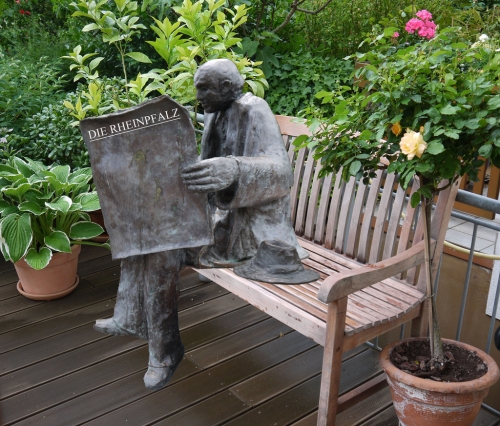
KULTUR / UMWELT / ZEITGEIST / SONSTIGES
Stephan Trüby bläst erneut linke Trübsal
Linker Architekturtheoretiker wittert überall „Rechte“
http://www.pi-news.net/2018/08/linker-architekturtheoreti...
(Einwanderung, Naturschutz und Städtebau…)
Klima-Oase Frankfurt – keine Spur!
Harmlose Plauderstunde zu Frankfurts Grün- und Bauplanungen
http://www.bff-frankfurt.de/artikel/index.php?id=1327
(3 Jahre alt, aber bezeichnend für das Goethe-Institut)
Tschechien
„Deutsch, fremd und nicht sonderlich sympathisch“
https://www.welt.de/politik/ausland/article149978357/Deut...
Auslandsrundfunk
„Haßbotschaften“: Deutsche Welle schaltet Kommentarfunktion ab
https://jungefreiheit.de/kultur/medien/2018/hassbotschaft...
ZDF-Journalisten behindert?
Göring-Eckardt zweifelt an demokratischer Gesinnung Kretschmers
https://jungefreiheit.de/politik/deutschland/2018/goering...
Kontrolle des ZDF-Teams
Einsatz bei Anti-Merkel-Demonstration: Wendt verteidigt Polizisten
https://jungefreiheit.de/politik/deutschland/2018/einsatz...
Mord in Offenburg
Palmer: Gniffke setzt Ruf der Tagesschau aufs Spiel
https://jungefreiheit.de/politik/deutschland/2018/palmer-...
Tagesschau rechtfertigt Verschweigen von Asylantengewalt
http://unser-mitteleuropa.com/2018/08/27/tagesschau-recht...
"Divers" ist das neue Geschlecht: Kabinett beschließt dritte Möglichkeit
https://web.de/magazine/politik/divers-geschlecht-kabinet...
Universitäten
AfD fordert Überprüfung der Gender-Lehrstühle
https://jungefreiheit.de/politik/deutschland/2018/afd-for...
Männerdiskriminierung an der Berliner Humboldt-Uni
Männer sind Schweiger
von Boris T. Kaiser
https://jungefreiheit.de/debatte/kommentar/2018/maenner-s...
Feministischer Männerhaß auf Twitter
Jammern und hassen auf höchstem Niveau
https://jungefreiheit.de/debatte/kommentar/2018/jammern-u...
Konservativer YouTube-Star
Argumentative Angriffslust
von Björn Harms
https://jungefreiheit.de/kultur/2018/argumentative-angrif...
Signal für Deutschland – Zeitschrift
https://www.signal-online.de/zeitschrift/
Papier ade´
Die Tageszeitung „taz“ gibt auf: Ende der Printausgabe angekündigt
https://www.tichyseinblick.de/kolumnen/alexander-wallasch...
Vorwürfe gegen den DFB
Manuel Neuer: Özil hat in Nationalelf keinen Rassismus erfahren
https://jungefreiheit.de/politik/deutschland/2018/manuel-...
Gehören die zu uns?
Von Ibrahim Naber
In mehreren Ländern wird während der WM heftig über die Identität der Nationalmannschaft diskutiert. Im Fokus: Spieler mit Migrationshintergrund
https://www.welt.de/print/die_welt/sport/article178943118...
Vielfalt
Wolfsburg-Spieler spricht sich gegen Regenbogenbinde aus
https://jungefreiheit.de/kultur/2018/wolfsburg-spieler-sp...
Verein Deutsche Sprache
DFB ist „Sprachpanscher des Jahres“
https://jungefreiheit.de/kultur/2018/dfb-ist-sprachpansch...
Patrick Bahners und die „habituelle Diskriminierung“
Die Abwendung von den Eigenen
von Karlheinz Weißmann
https://jungefreiheit.de/debatte/kommentar/2018/die-abwen...
Konservative in der „Black Community“
Kanye West fürchtet wegen Trump-Lob um Karriere
https://jungefreiheit.de/politik/ausland/2018/kanye-west-...
Nie zweimal in denselben Fluß. Björn Höcke im Gespräch
https://sezession.de/59327/nie-zweimal-in-denselben-fluss...
Der Riese Marx in Trier
https://irisnieland.wordpress.com/2018/08/22/der-riese-ma...
Duisburg
Sie verdiente mehr als Merkel: Chefin von Behinderten-Werkstatt entlassen
https://www.tag24.de/nachrichten/sie-verdiente-mehr-als-m...
ESC: Türkei bleibt dem Eurovision Song Contest weiterhin fern
https://www.gmx.net/magazine/unterhaltung/musik/esc/esc-t...
(Lebensgefährlicher Trend)
"Balconing" auf Mallorca
Nach 8. Todesopfer: Experten schalten sich ein
https://www.tonight.de/news/aktuelles/balconing-auf-mallo...
Verdrängt die Sprachsteuerung die Fernbedienung?
https://www.internetworld.de/technik/sprachassistent/verd...
Kino
Spike Lees "BlacKkKlansman": Clevere Satire über Rassismus
https://www.volksstimme.de/kino/filmbesprechung/spike-lee...
U2-Sänger
Bono sieht Europa durch Nationalisten gefährdet
https://jungefreiheit.de/kultur/2018/bono-sieht-europa-du...



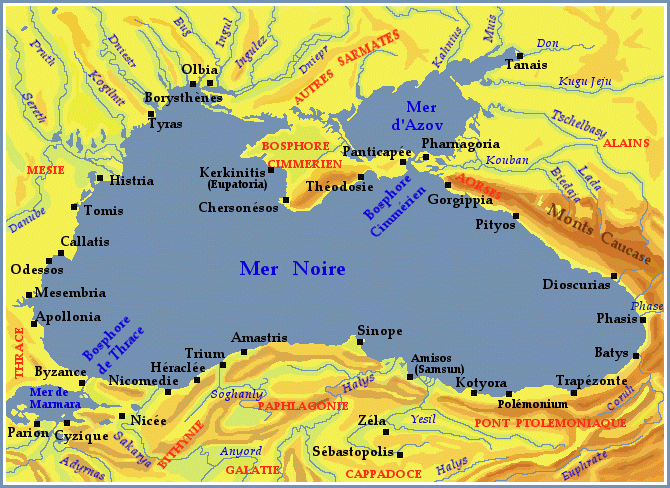

 del.icio.us
del.icio.us
 Digg
Digg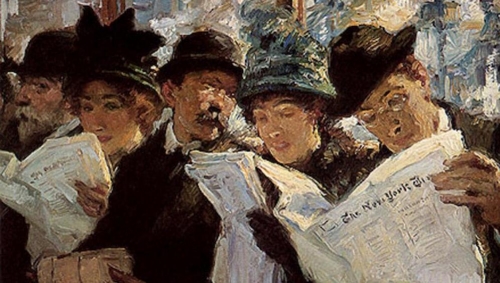
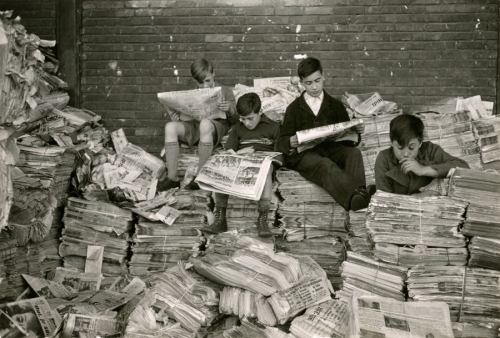
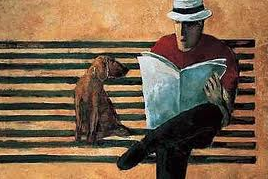
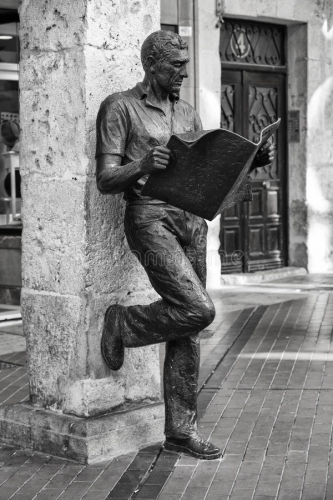
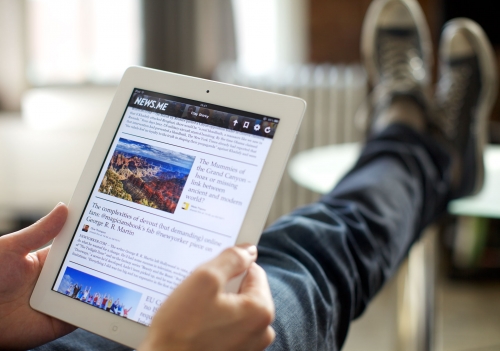
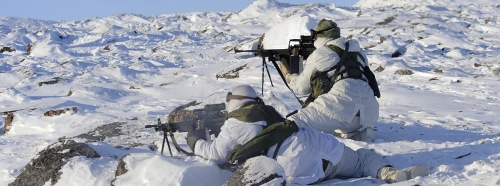
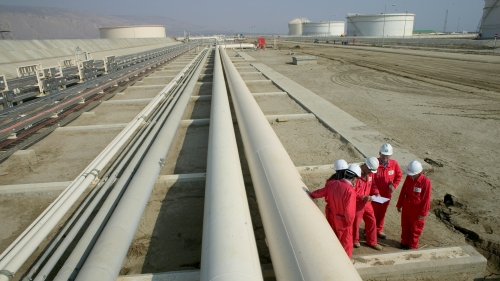
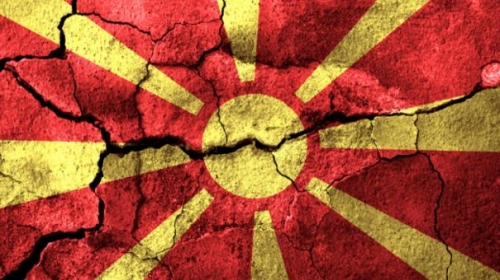
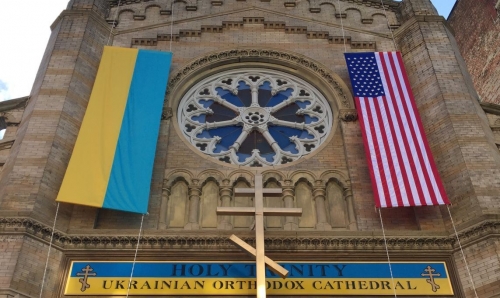
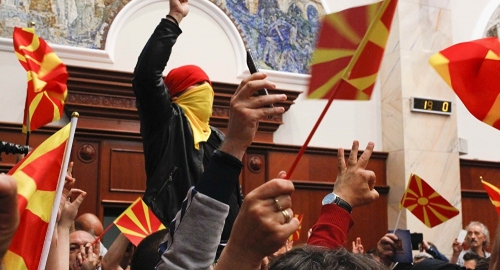


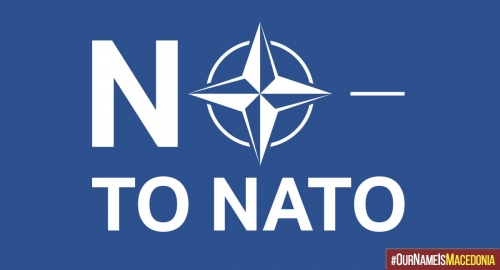
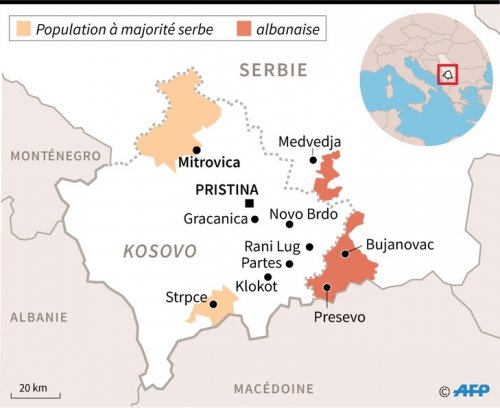
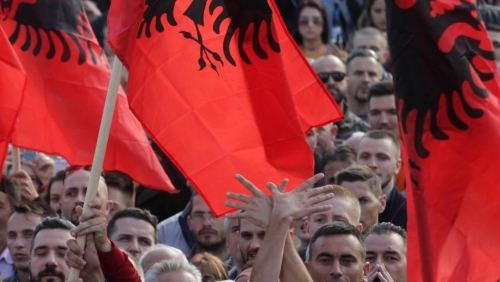
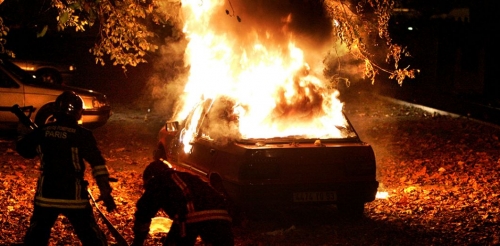
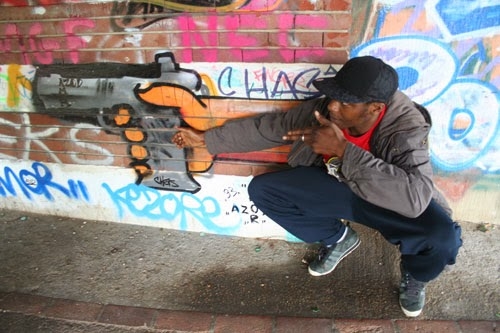
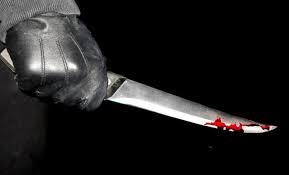
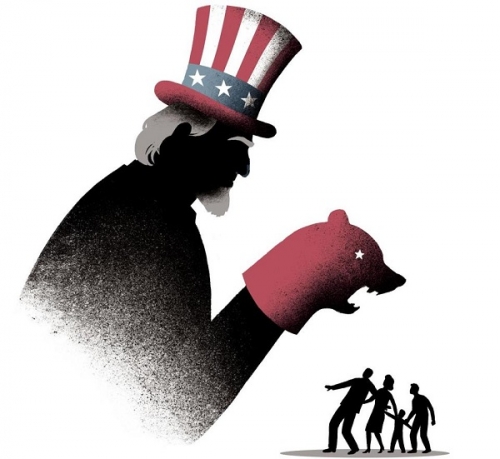
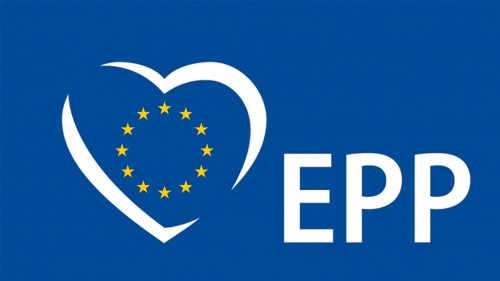
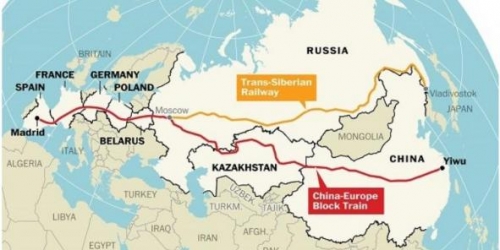


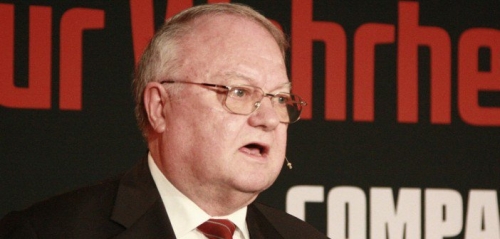
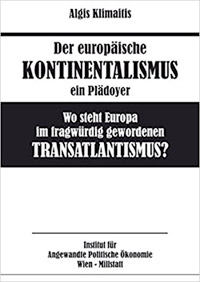 Algis Klimaitis a hérité de gènes politiques. Son arrière-grand-père, ingénieur ferroviaire et propriétaire d’un domaine près de Kaunas, fut l’un des chefs du mouvement national lituanien. En 1863, il participa au soulèvement lituano-polonais contre la politique persistante d’oppression du tsar Alexandre II. Son grand-père fut pendant une courte période l’adjudant de l’amiral Kolchak, le souverain temporaire de l’Empire russe, et combattit du côté de l’armée blanche contre les bolcheviques. Son père, Algirdas J. Klimaitis, était le chef des associations paramilitaires, qui ont libéré Kaunas des troupes soviétiques en 1941, avant même l’avance de la Wehrmacht. Lorsque la reconquête de la Lituanie par l’armée soviétique fut imminente, la famille dut émigrer. Ils ont alors trouvé refuge en Allemagne.
Algis Klimaitis a hérité de gènes politiques. Son arrière-grand-père, ingénieur ferroviaire et propriétaire d’un domaine près de Kaunas, fut l’un des chefs du mouvement national lituanien. En 1863, il participa au soulèvement lituano-polonais contre la politique persistante d’oppression du tsar Alexandre II. Son grand-père fut pendant une courte période l’adjudant de l’amiral Kolchak, le souverain temporaire de l’Empire russe, et combattit du côté de l’armée blanche contre les bolcheviques. Son père, Algirdas J. Klimaitis, était le chef des associations paramilitaires, qui ont libéré Kaunas des troupes soviétiques en 1941, avant même l’avance de la Wehrmacht. Lorsque la reconquête de la Lituanie par l’armée soviétique fut imminente, la famille dut émigrer. Ils ont alors trouvé refuge en Allemagne.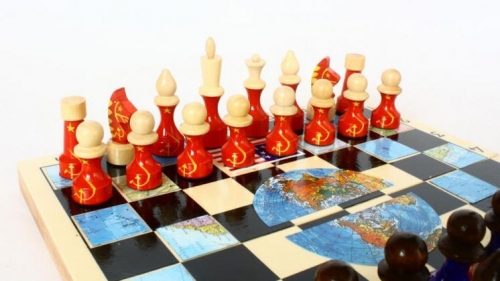
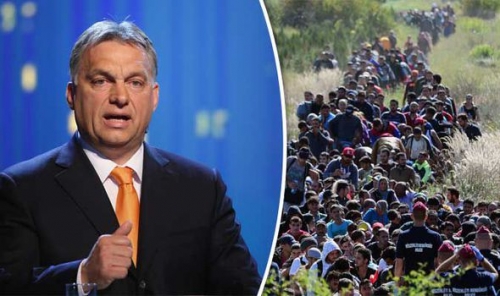
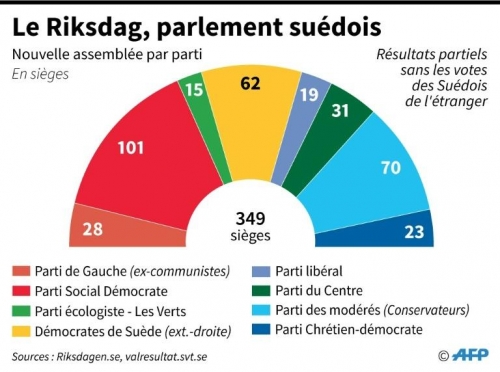
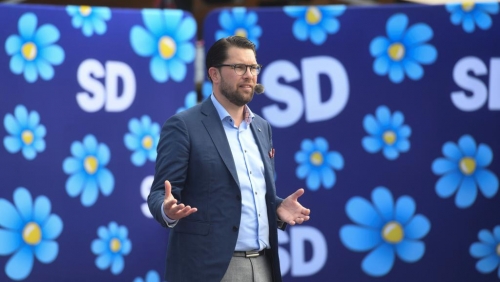
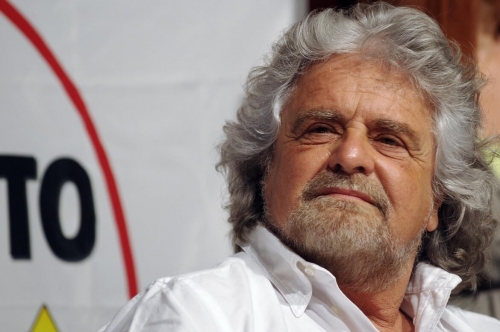
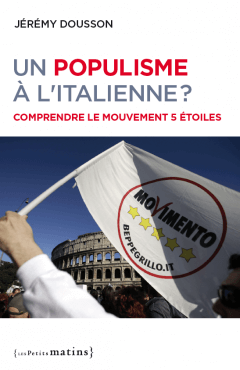 Dans Un populisme à l’italienne ?, Jérémy Dousson, directeur général adjoint du magazine Alternatives économiques, apporte un éclairage intéressant. Le livre étudie un véritable « ovni » politique qui a permis l’avènement en Europe du premier « populisme de gouvernement » ! Paru avant les résultats des législatives du 4 mars 2018, l’ouvrage n’évoque pas bien sûr la nouvelle coalition gouvernementale. L’auteur précisait alors que « le mouvement ne s’allie pas avec les partis qui ont échoué; il gouverne seul ou il ne gouverne pas (p. 110) ». Pas sûr toutefois que Jérémy Dousson aurait conservé sa belle sérénité s’il avait appris l’entente avec la Ligue… Pourtant, « en tant que partis qui expriment, d’une manière différente, la mentalité populiste, prévient Marco Tarchi, leurs vues ne sont pas, sur le fond, incompatibles, donc une alliance est possible et, peut-être, viable (1) »
Dans Un populisme à l’italienne ?, Jérémy Dousson, directeur général adjoint du magazine Alternatives économiques, apporte un éclairage intéressant. Le livre étudie un véritable « ovni » politique qui a permis l’avènement en Europe du premier « populisme de gouvernement » ! Paru avant les résultats des législatives du 4 mars 2018, l’ouvrage n’évoque pas bien sûr la nouvelle coalition gouvernementale. L’auteur précisait alors que « le mouvement ne s’allie pas avec les partis qui ont échoué; il gouverne seul ou il ne gouverne pas (p. 110) ». Pas sûr toutefois que Jérémy Dousson aurait conservé sa belle sérénité s’il avait appris l’entente avec la Ligue… Pourtant, « en tant que partis qui expriment, d’une manière différente, la mentalité populiste, prévient Marco Tarchi, leurs vues ne sont pas, sur le fond, incompatibles, donc une alliance est possible et, peut-être, viable (1) »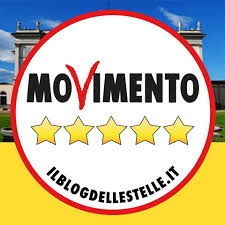 C’est Beppe Grillo qui pose dès le départ les interdits fondamentaux qui rendent le M5S si singulier. Les eletti (élus) n’existent pas, mais il y a des portavoci, les porte-parole. Avant une approbation en ligne sur la plateforme Rousseau, les éventuels candidats à une fonction élective s’engagent à ne pas cumuler de mandat, à n’effectuer que deux mandats consécutifs, à ne pas embaucher des membres de leur famille au titre d’assistants et à ne pas se parachuter dans une circonscription gagnable. Enfin, tous doivent présenter un casier judiciaire vierge. C’est la raison pour laquelle Beppe Grillo n’a jamais été candidat. Outre que « le comique a fait ou fait encore l’objet d’environ quatre-vingt-dix procès (p. 31) » pour des diffamations publiques, il a été condamné en 1981 pur un homicide involontaire lors d’un accident de la route. En 2014, un tribunal l’a aussi condamné à quatre mois de prison pour avoir brisé des scellés apposées sur le chantier du Lyon – Turin (5).
C’est Beppe Grillo qui pose dès le départ les interdits fondamentaux qui rendent le M5S si singulier. Les eletti (élus) n’existent pas, mais il y a des portavoci, les porte-parole. Avant une approbation en ligne sur la plateforme Rousseau, les éventuels candidats à une fonction élective s’engagent à ne pas cumuler de mandat, à n’effectuer que deux mandats consécutifs, à ne pas embaucher des membres de leur famille au titre d’assistants et à ne pas se parachuter dans une circonscription gagnable. Enfin, tous doivent présenter un casier judiciaire vierge. C’est la raison pour laquelle Beppe Grillo n’a jamais été candidat. Outre que « le comique a fait ou fait encore l’objet d’environ quatre-vingt-dix procès (p. 31) » pour des diffamations publiques, il a été condamné en 1981 pur un homicide involontaire lors d’un accident de la route. En 2014, un tribunal l’a aussi condamné à quatre mois de prison pour avoir brisé des scellés apposées sur le chantier du Lyon – Turin (5).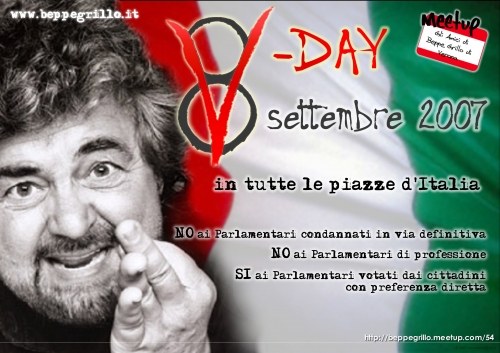
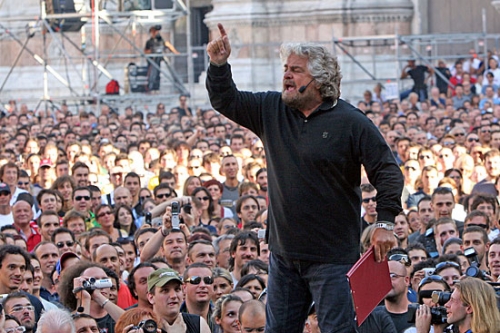
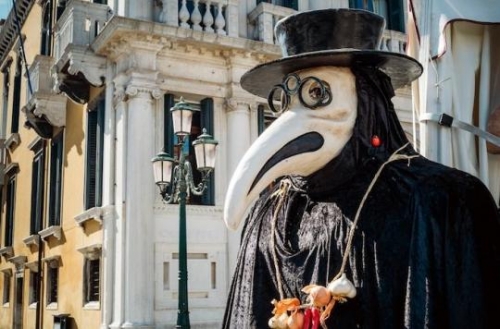
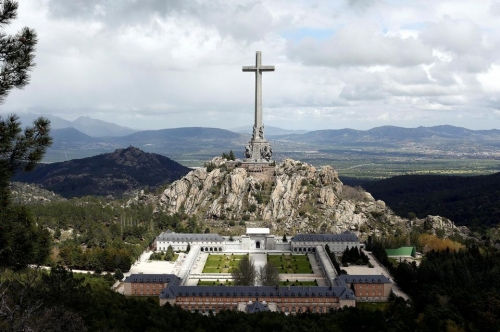
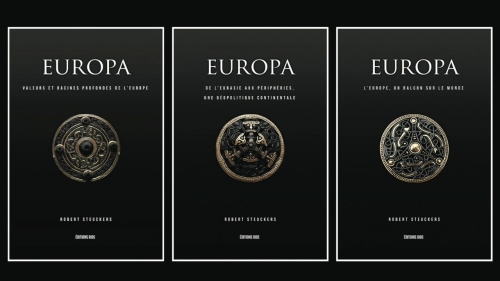
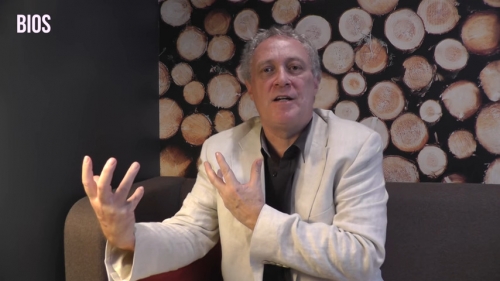
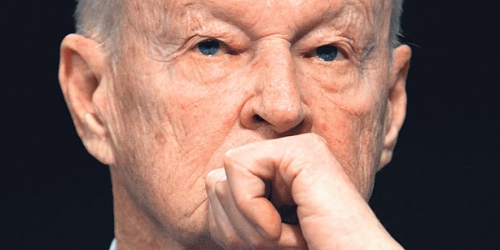
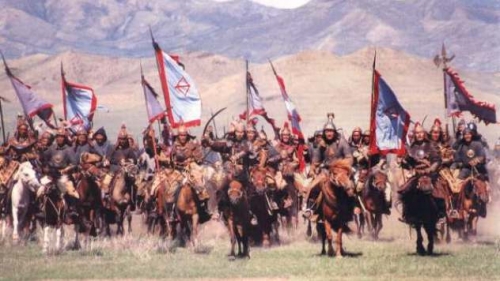
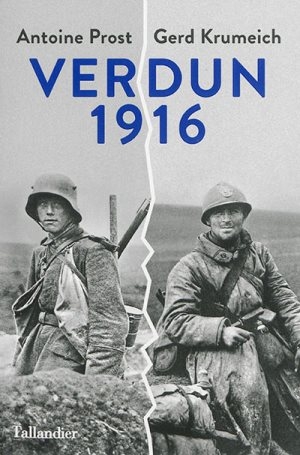 Robert Steuckers a bien conscience que dépasser les antagonismes nationaux, les intérêts égoïstes de nos gouvernements sera long et difficile. La pensée européenne elle aussi est enclavée, enclavée à l’intérieur de ses nombreuses frontières qui sont autant les symboles de gloires passées que d’un futur perclus. Beaucoup des nôtres sont encore incapables de sortir du paradigme stato-national, confondent (sciemment ou non) Europe et Union Européenne, Union Européenne et véritable gouvernement européen. Beaucoup ne comprennent pas que le génie français par exemple est ce qui permettait à notre chère nation de faire la différence face à des adversaires à sa taille mais n’est en aucun cas ce qui donne à David le pouvoir de terrasser Goliath. Beaucoup ne comprennent pas que les recettes d’hier ne s’appliquent pas à demain. Seul notre environnement et les capacités dont nous disposons peuvent dicter ce qui nous sera possible d’accomplir comme le rang que nous pourrons atteindre. Et donc de dicter la politique que nous devons mener pour rester souverains. Ne seront souverains que des Européens, qu’ils soient Français, Allemands, Lituaniens ou Italiens. Mais individuellement il n’y aura pas de souveraineté pour eux et ils seront condamné à se mettre sous la férule d’un des grands blocs qui domineront demain le monde multipolaire qui se dessine sous nos yeux chaque jour un peu plus.
Robert Steuckers a bien conscience que dépasser les antagonismes nationaux, les intérêts égoïstes de nos gouvernements sera long et difficile. La pensée européenne elle aussi est enclavée, enclavée à l’intérieur de ses nombreuses frontières qui sont autant les symboles de gloires passées que d’un futur perclus. Beaucoup des nôtres sont encore incapables de sortir du paradigme stato-national, confondent (sciemment ou non) Europe et Union Européenne, Union Européenne et véritable gouvernement européen. Beaucoup ne comprennent pas que le génie français par exemple est ce qui permettait à notre chère nation de faire la différence face à des adversaires à sa taille mais n’est en aucun cas ce qui donne à David le pouvoir de terrasser Goliath. Beaucoup ne comprennent pas que les recettes d’hier ne s’appliquent pas à demain. Seul notre environnement et les capacités dont nous disposons peuvent dicter ce qui nous sera possible d’accomplir comme le rang que nous pourrons atteindre. Et donc de dicter la politique que nous devons mener pour rester souverains. Ne seront souverains que des Européens, qu’ils soient Français, Allemands, Lituaniens ou Italiens. Mais individuellement il n’y aura pas de souveraineté pour eux et ils seront condamné à se mettre sous la férule d’un des grands blocs qui domineront demain le monde multipolaire qui se dessine sous nos yeux chaque jour un peu plus. 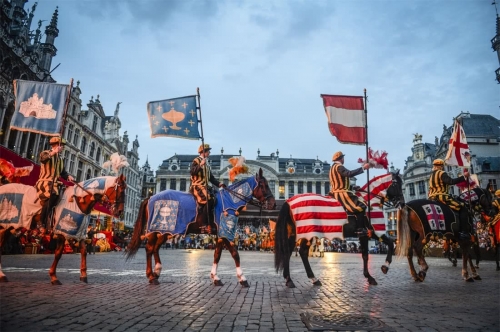






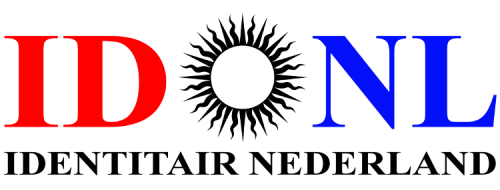
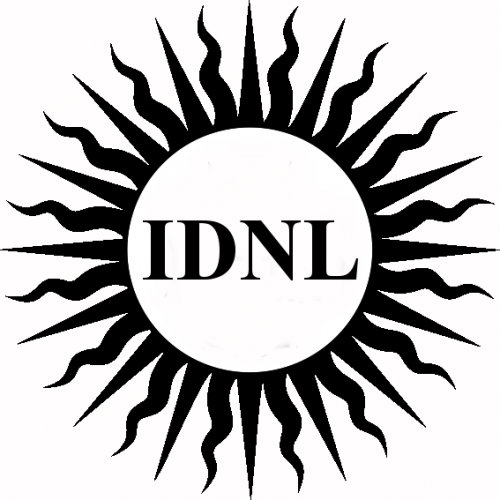
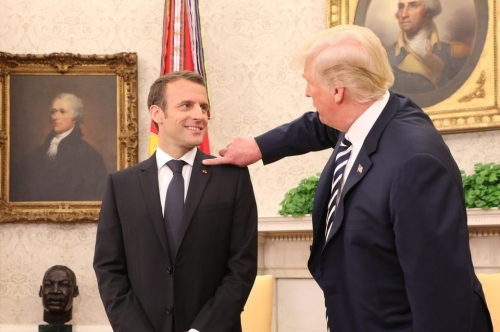
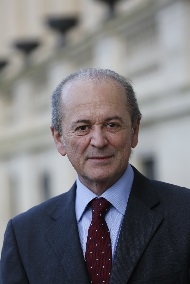 Un Maître espion « représentant personnel du président Macron pour la Syrie »
Un Maître espion « représentant personnel du président Macron pour la Syrie »